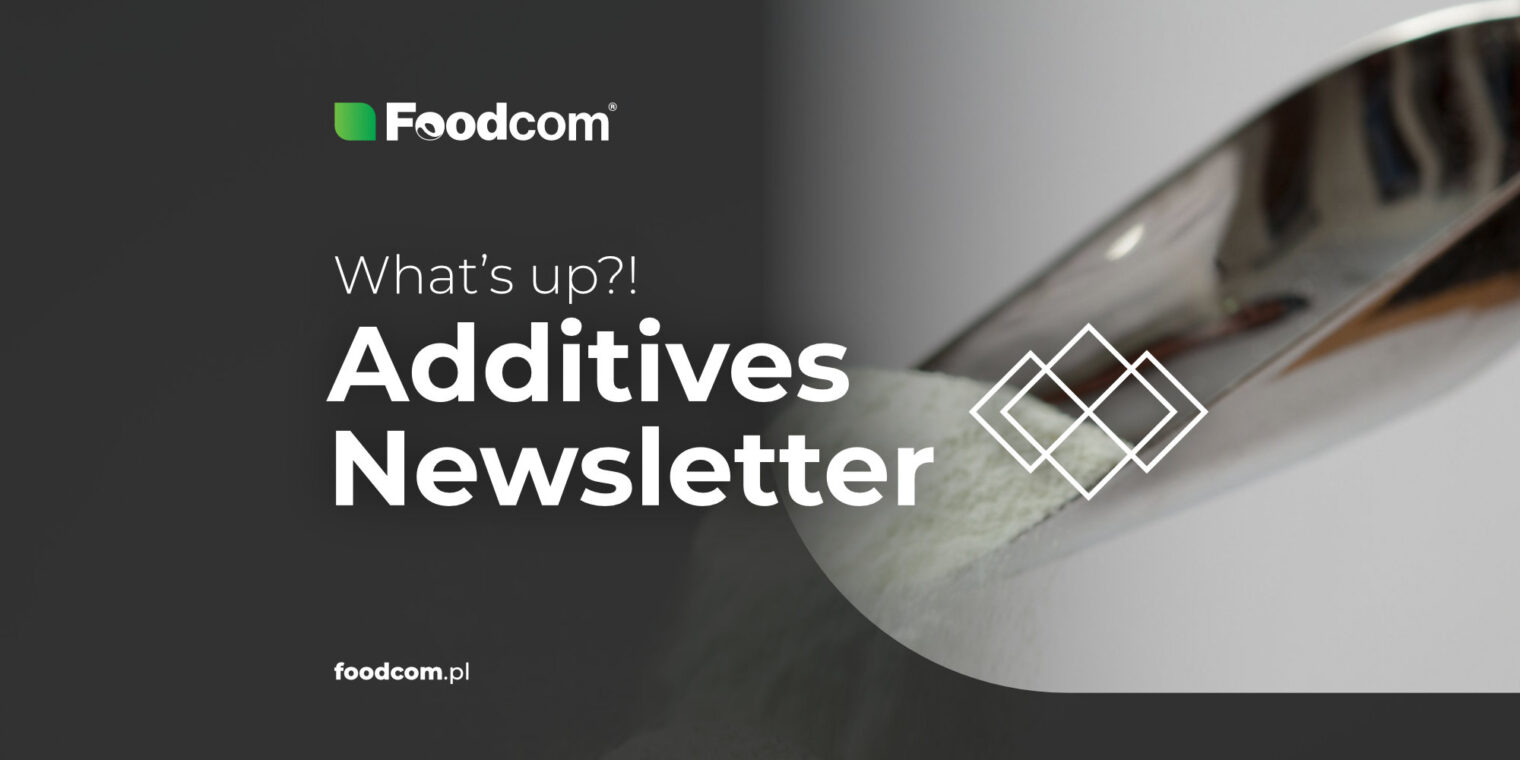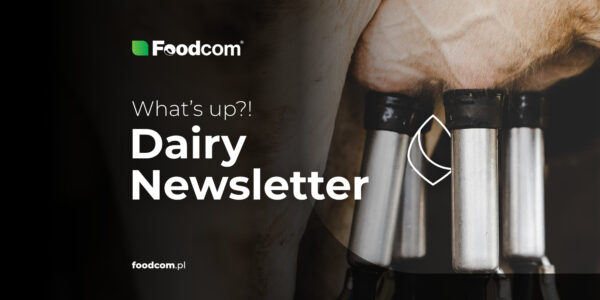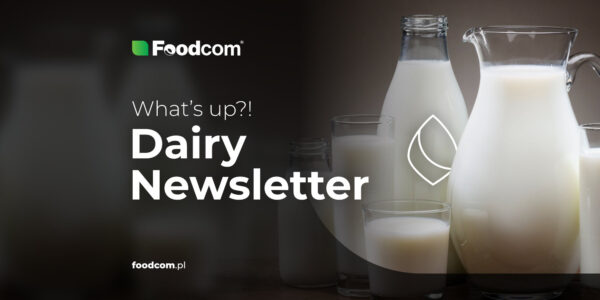Summary
Table of contents
The additives market is patiently waiting for its revival after the holidays. In the meantime, there is the expected mood in the market of transactions, although being somewhat slow, they stay stable. The status of production and deliveries is worth mentioning, as some upstream factories suspend production lines. This is related to plant maintenance, which usually takes place at this time of year before a fairly dynamic fall season.
This week is dominated by industry conferences, as Biofach and Vivaness are currently taking place in Nuremberg. Biofach, the World’s Leading Trade Fair for Organic Food and Vivaness, the International Trade Fair for Natural and Organic Personal Care are one of the most important events this year, with over 1,000 media representatives from about 40 countries, exhibitor presentations and roundtables from all around the world. So, we are looking forward to the results of the discussions and the implementation of the new solutions that will be presented in the companies.
Latest report published by Kemiex showed China’s price tracker for APIs, vitamins, and feed amino acids. The report provides a visual tracker of externally sourced list prices and quotations for selected vitamins, feed amino acids, and APIs. All three categories have shown weaker offer prices recently, reflecting more mediocre global demand. Inositol, Choline Chloride and Lysine 98% have seen the strongest price fluctuations recently.
As we all know, governments of various countries are taking several initiatives to reduce emissions from livestock breeding. These initiatives are expected to have a positive impact on global carbon emissions and drive demand for improved feed additives in the foreseeable future. According to the Low Emissions Technology Statement (LETS), the Australian government announced $1.3 billion in additional funding for low-emission technologies in its 2021 report. Of this, $55.5 million is earmarked for the development of soil carbon and livestock feed supplement technologies. What solutions will other countries choose and how will this affect the feed additive market? The answers will probably appear in the coming months.
Continue reading to learn more.
With us, you’ll never miss a thing!
Analyzing the second quarter of 2022, we note that the prices of products of Chinese origin were quite stable and only decreased by 5% year-on-year. Regarding spot prices for the commodity, these remained at the same level as in Q1 and fell 6% year-on-year. Currently, the market appears stable and production in the European market is proceeding without major disruptions.
Higher natural gas prices and rising costs of other raw materials may limit further price declines. It’s difficult to predict what the production will look like later in the year, but it’s certain that demand will soon increase. It’s worth mentioning that one of the main Chinese methionine plants – Xinhecheng, plans to stop production for 6-8 weeks in early August, which can negatively affect the market.
Fluctuations in prices for Threonine are connected to seasonal trends. By the end of the Q2, transportation costs had fallen somewhat, so many market participants were switching to Chinese products.
Export prices began to fall due to the rising USD-CNY exchange rate. In June, buyers held back in part because they expected further reductions. Average prices fell from quarter to quarter due to weak demand, but rose year-on-year due to rising raw material costs. Further analyzing Q2, we could observe that in some parts of the world, such as America, buyers were expecting further price declines, so they showed a less activity and interest, working on long stocks purchased in the previous year.
The price for Citric Acid, Vitamin C and other derivatives such as Trisodium Citrate slightly decreased – which means it’s a good time for buyers, before the increases we forecast in Q4.
In China, commodity trade rates have been somewhat weak, and the purchases and sales in the national market have not been satisfactory. The aforementioned Xinhecheng plant producing Vitamin C had already carried out maintenance work for 10-12 weeks in early July which resulted in disruption in the market for citric acid on a national level.
We can still see a visible trend in shortages of Xanthan Gum, but the same situation occurs with other available commodities, like Tara or Arabic biogums. Products are difficult to supply, and prices tend to fluctuate widely at both ends of the price range. So, it is still difficult to predict the next few months on the market.
We can see an upward trend in these additives, since there is a limited amount of product available. The situation is highly dependent on the Chinese market, where most of the products come from.
This week is dominated by industry conferences, as Biofach and Vivaness are currently taking place in Nuremberg. Biofach, the World’s Leading Trade Fair for Organic Food and Vivaness, the International Trade Fair for Natural and Organic Personal Care are one of the most important events this year, with over 1,000 media representatives from about 40 countries, exhibitor presentations and roundtables from all around the world. So, we are looking forward to the results of the discussions and the implementation of the new solutions that will be presented in the companies.
Latest report published by Kemiex showed China’s price tracker for APIs, vitamins, and feed amino acids. The report provides a visual tracker of externally sourced list prices and quotations for selected vitamins, feed amino acids, and APIs. All three categories have shown weaker offer prices recently, reflecting more mediocre global demand. Inositol, Choline Chloride and Lysine 98% have seen the strongest price fluctuations recently.
As we all know, governments of various countries are taking several initiatives to reduce emissions from livestock breeding. These initiatives are expected to have a positive impact on global carbon emissions and drive demand for improved feed additives in the foreseeable future. According to the Low Emissions Technology Statement (LETS), the Australian government announced $1.3 billion in additional funding for low-emission technologies in its 2021 report. Of this, $55.5 million is earmarked for the development of soil carbon and livestock feed supplement technologies. What solutions will other countries choose and how will this affect the feed additive market? The answers will probably appear in the coming months.
Continue reading to learn more.
With us, you’ll never miss a thing!
Monocalcium Phosphate
Analyzing the second quarter of 2022, we note that the prices of products of Chinese origin were quite stable and only decreased by 5% year-on-year. Regarding spot prices for the commodity, these remained at the same level as in Q1 and fell 6% year-on-year. Currently, the market appears stable and production in the European market is proceeding without major disruptions.
Methionine
Higher natural gas prices and rising costs of other raw materials may limit further price declines. It’s difficult to predict what the production will look like later in the year, but it’s certain that demand will soon increase. It’s worth mentioning that one of the main Chinese methionine plants – Xinhecheng, plans to stop production for 6-8 weeks in early August, which can negatively affect the market.
Threonine
Fluctuations in prices for Threonine are connected to seasonal trends. By the end of the Q2, transportation costs had fallen somewhat, so many market participants were switching to Chinese products.
Lysine HCL
Export prices began to fall due to the rising USD-CNY exchange rate. In June, buyers held back in part because they expected further reductions. Average prices fell from quarter to quarter due to weak demand, but rose year-on-year due to rising raw material costs. Further analyzing Q2, we could observe that in some parts of the world, such as America, buyers were expecting further price declines, so they showed a less activity and interest, working on long stocks purchased in the previous year.
Citric Acid/Vitamin C
The price for Citric Acid, Vitamin C and other derivatives such as Trisodium Citrate slightly decreased – which means it’s a good time for buyers, before the increases we forecast in Q4.
In China, commodity trade rates have been somewhat weak, and the purchases and sales in the national market have not been satisfactory. The aforementioned Xinhecheng plant producing Vitamin C had already carried out maintenance work for 10-12 weeks in early July which resulted in disruption in the market for citric acid on a national level.
Xanthan Gum
We can still see a visible trend in shortages of Xanthan Gum, but the same situation occurs with other available commodities, like Tara or Arabic biogums. Products are difficult to supply, and prices tend to fluctuate widely at both ends of the price range. So, it is still difficult to predict the next few months on the market.
Sorbitol powder/Maltitol powder
We can see an upward trend in these additives, since there is a limited amount of product available. The situation is highly dependent on the Chinese market, where most of the products come from.
Categories:








